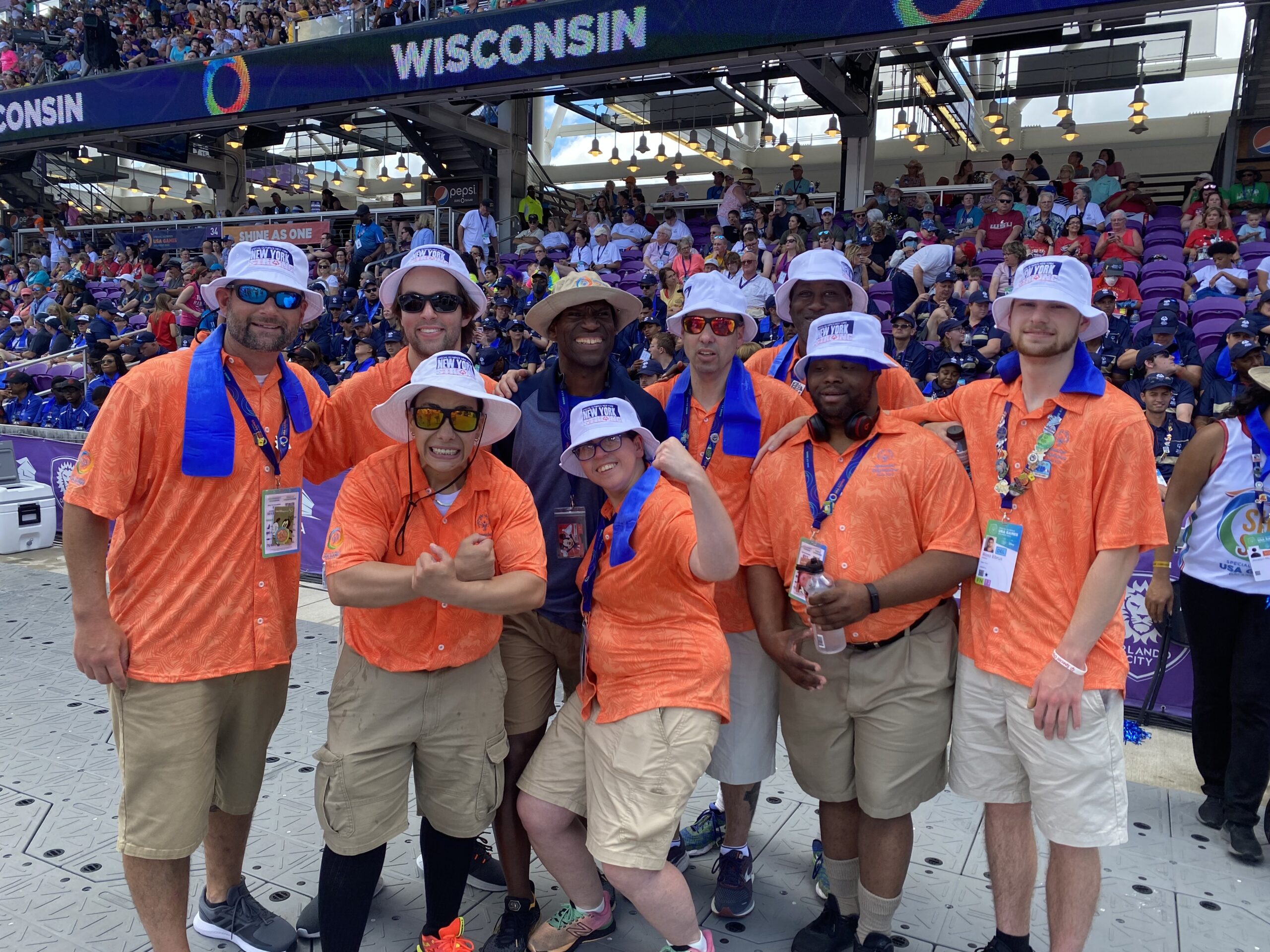
When Ross Ebrus and William Segarra qualified for the Special Olympics USA Games in 2019, they had no idea how long they’d have to wait to compete at the national-level competition. The event was postponed because of the pandemic, and after a nearly three-year wait, the pair of Southampton athletes were finally able to head south to Orlando, Florida, on June 5-10, along with several other athletes representing Team New York, and compete in track and field events at the ESPN Wide World of Sports Complex at Disney World.
Throughout the pandemic, and despite the restrictions that came with it, Ebrus and Segarra stayed in shape and stayed sharp, and they proved it in Orlando.
Under the guidance of Southampton High School teacher and unified sports coach Brian Tenety — who was one of three coaches for Team New York and traveled to Florida with the team — Ebrus and Segarra both had outstanding performances at the USA Games. Ebrus, 19, competed in both the shot put and 100-meter dash, while Segarra, 23, competed in the long jump, 200-meter race and the 400-meter race. The teammates earned top-10 finishes in every event, highlighted by Ebrus taking home the gold medal in the 100-meter race. He also finished third in the shot put, while Segarra was third in the 200, and seventh in both the 400 and the long jump.
Those were thrilling results for Ebrus, Segarra and the rest of their New York teammates and coaches, especially considering the challenges they faced over the last few years. Tenety said that while athletes like Ebrus and Segarra were able to continue training and competing — thanks in large part to the strong structure of support at Southampton, including the unified sports program, where athletes with intellectual disabilities compete alongside other athletes — many other Special Olympics athletes were taken out of their routines and lost access to training facilities and opportunities over the last two years.
“The Special Olympics athletes are kind of the unspoken population of people that didn’t get a chance to get back into competition as fast as others,” he said. “In Southampton, we’re lucky because they’re able to do more intramural-based programs alongside the general population.”
Tenety pointed out that not all the athletes at the Special Olympics USA Games are in their teens or early 20s and still benefiting from school-based programs and training opportunities. He had athletes on his team ranging in age from 19 to 49.
“Some of them didn’t have an opportunity to continue working out or competing because their community programs shut down,” Tenety said of the pandemic’s effect on some Special Olympics athletes.
Tenety said the experience was a great one for Ebrus and Segarra, and added he enjoyed being part of the coaching staff for the first time. Tenety and three other coaches were responsible for guiding a total of 13 track and field athletes at the Games, and he added that the level of coverage by ESPN was “unbelievable.”
Tenety said that supporting athletes like Ebrus and Segarra, giving them the resources they need to continue competing at a high level once they exit the public school system, and giving them the praise and attention they deserve for performing so well at such a high level of competition are all focal points for him, and will continue to be in the future.
He said he’d like to see more emphasis put on developing community-based programs to help foster and encourage further participation in sports for athletes with intellectual disabilities, pointing out that there isn’t an obvious organization or place for them to transfer their athletic talent, from a training and competition perspective, once they are out of high school. He likened the importance of doing that to the importance of creating strong youth programs for elementary school-age students as feeder programs for successful middle school and varsity teams.
“We need to get more people involved in order for these kids to leave [high school] and keep their health and wellness going through community-based programs,” Tenety said. “We also need to get more volunteers that want to coach these individuals.”
“It’s a struggle for them to stay involved if they don’t have the support system,” he added.
Anyone who wants to get involved with helping to coach and providing support for the Special Olympics athletes can contact Brian Tenety at btenety@southamptonschools.org.